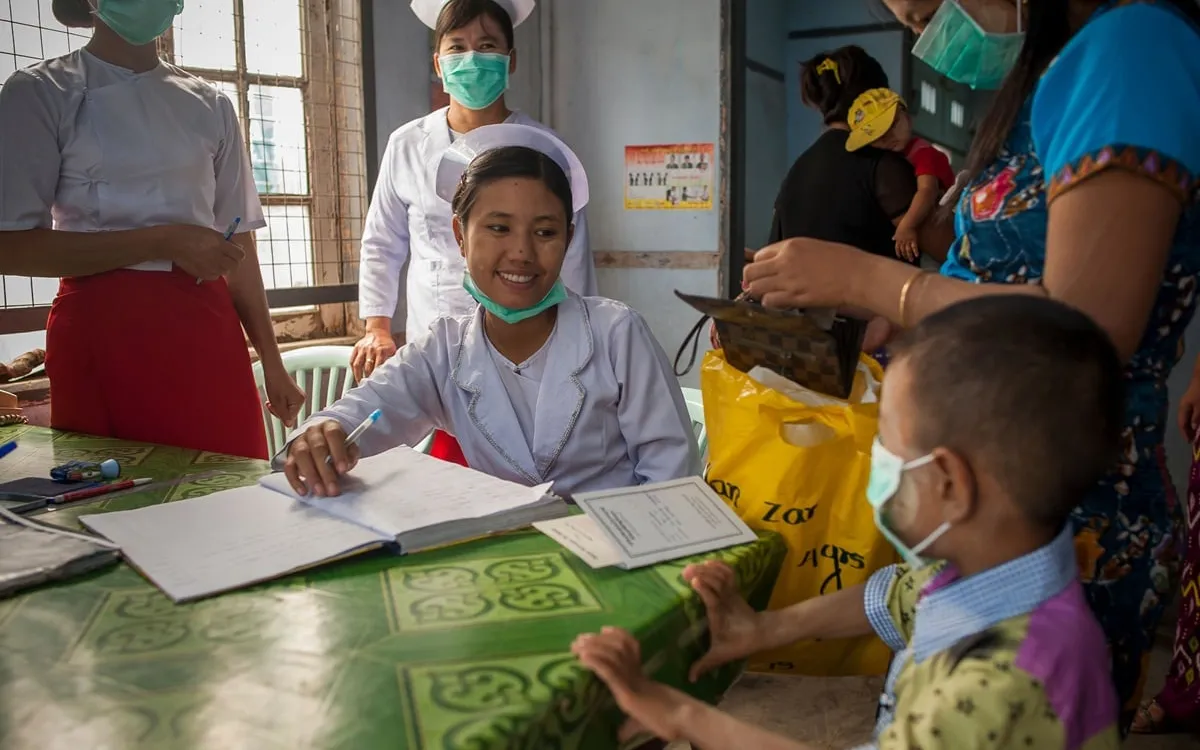
On World Tuberculosis (TB) Day, celebrated on 24 March, the World Health Organization (WHO) is urging an immediate investment of resources to safeguard and sustain tuberculosis care and support services for those in dire need across various regions and countries. Despite being the world’s most lethal infectious disease, TB affects over 1 million people annually, causing devastating repercussions for families and communities worldwide.
Since the year 2000, global initiatives aimed at combating TB have reportedly saved around 79 million lives. However, recent and drastic cuts in global health funding pose a significant threat to these hard-won gains. The rise of drug resistance, particularly in Europe, coupled with ongoing conflicts in the Middle East, Africa, and Eastern Europe, has intensified the challenges faced by the most vulnerable populations.
Under the theme “Yes! We Can End TB: Commit, Invest, Deliver,” the World Tuberculosis Day 2025 campaign serves as a powerful reminder of the urgency and accountability required in the fight against TB. Dr. Tedros Adhanom Ghebreyesus, WHO Director-General, emphasized, “The huge gains the world has made against TB over the past 20 years are now at risk as cuts to funding start to disrupt access to services for prevention, screening, and treatment for people with TB.” He reiterated the importance of adhering to the commitments made by world leaders at the UN General Assembly just 18 months ago, which aimed to accelerate efforts to eradicate TB.
Early reports to the WHO indicate that significant disruptions in the TB response are being observed in several high-burden countries, with the most severe impacts felt in the WHO African Region. Other affected areas include the WHO South-East Asian and Western Pacific Regions. An alarming 27 countries are experiencing critical breakdowns in their TB response systems, which have led to:
Human resource shortages that undermine service delivery. Severe disruptions in diagnostic services, causing delays in detection and treatment. Collapsing data and surveillance systems, compromising disease tracking and management. Deteriorating community engagement efforts, including active case finding, screening, and contact tracing, which increase transmission risks.Additionally, nine countries report failures in TB drug procurement and supply chains, jeopardizing treatment continuity and adversely affecting patient outcomes. The funding cuts of 2025 exacerbate an already existing underfunding crisis for the global TB response. In 2023, only 26% of the required US$22 billion for TB prevention and care was available, creating a significant shortfall. TB research is also in jeopardy, receiving only one-fifth of the US$5 billion annual target in 2022, which stifles advancements in diagnostics, treatments, and vaccines.
In light of the pressing challenges confronting TB services globally, WHO’s Director-General and the Civil Society Task Force on Tuberculosis have issued a powerful joint statement. This statement, released this week, calls for immediate, coordinated actions from governments, global health leaders, donors, and policymakers. It emphasizes five critical priorities:
Urgently addressing TB service disruptions to match the scale of the crisis. Securing sustainable domestic funding to ensure uninterrupted and equitable access to TB prevention and care. Safeguarding essential TB services, which include access to life-saving drugs, diagnostics, treatment, and social protections, while promoting cross-sector collaboration. Establishing or revitalizing national collaboration platforms to foster alliances among civil society, NGOs, donors, and professional societies in tackling TB challenges. Enhancing monitoring and early warning systems to assess real-time impacts and detect disruptions swiftly.Dr. Tereza Kasaeva, Director of WHO’s Global Programme on TB and Lung Health, noted, “This urgent call is timely and underscores the necessity of swift, decisive action to sustain global TB progress and prevent setbacks that could cost lives.” She highlighted that investing in ending TB is not only a moral obligation but also an economic necessity, as every dollar spent on prevention and treatment is estimated to yield US$43 in economic returns.
To address the growing challenges posed by resource constraints, WHO is promoting the integration of TB and lung health within primary healthcare systems as a sustainable solution. The newly released technical guidance outlines essential actions throughout the care continuum, focusing on prevention, early detection of TB and comorbidities, optimized management during first contact, and improved patient follow-up.
This guidance also encourages better utilization of existing health systems to address shared risk factors such as overcrowding, tobacco use, undernutrition, and environmental pollutants. By tackling the determinants of TB in conjunction with both communicable and non-communicable diseases, lung conditions, and disabilities through a unified strategy, WHO strives to enhance the global response and achieve lasting improvements in health outcomes.
On this World TB Day, the WHO calls upon individuals, communities, societies, donors, and governments to unite in the fight against TB. Without cohesive action from all stakeholders, the global TB response may be severely compromised, reversing decades of progress and endangering millions of lives while jeopardizing overall health security.